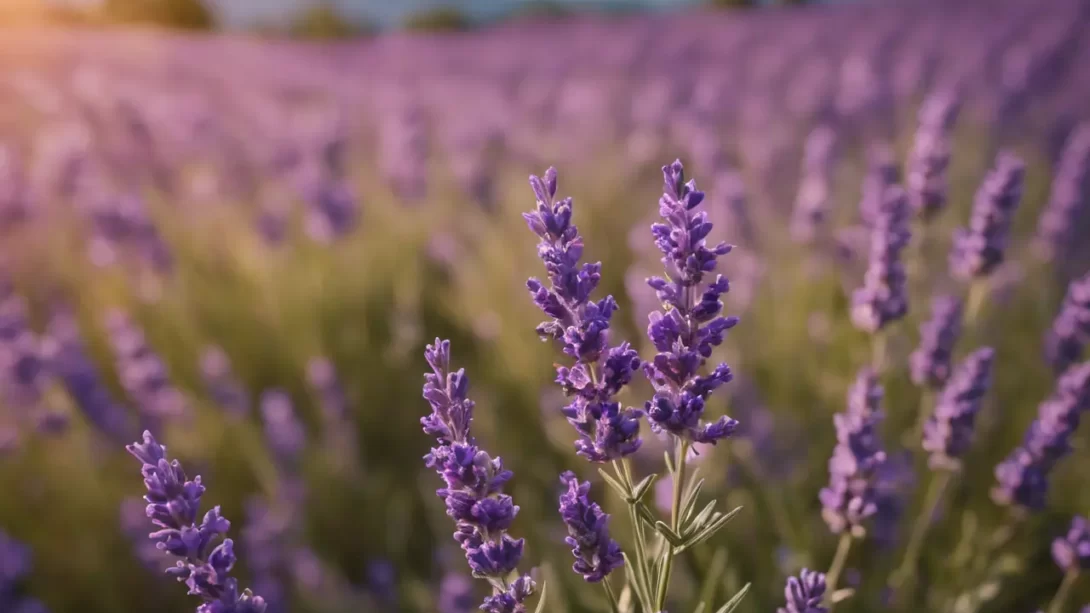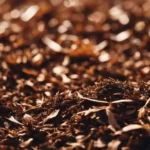Flies are a common nuisance in both gardens and homes, often prompting a search for natural and effective deterrents. Among various natural remedies, lavender (Lavandula) has been touted for its potential to repel these pesky insects. This article delves into lavender’s properties, its effectiveness against flies, and practical ways to incorporate it into your pest control strategy.
Lavender
Lavandula, commonly known as lavender, is renowned for its vibrant purple blooms and soothing fragrance. Originating from the Mediterranean region, this perennial plant has found a place in gardens worldwide for its beauty and aromatic qualities. Historically, lavender has been utilized in various forms for its therapeutic benefits and as a natural remedy for repelling insects, including flies. The plant’s essential oils, particularly compounds like linalool and camphor, are believed to be the key to its repellent properties.
Lavender’s effectiveness as a fly deterrent is not just folklore; it is grounded in its strong scent, which is unappealing to many pests. While humans may find lavender’s aroma pleasant and calming, flies and other insects often avoid it. This is attributed to the essential oils in lavender, which emit a potent fragrance that is offensive to these insects.
How Lavender Repels Flies
The primary way lavender repels flies is through its strong scent. Flies, like many insects, are highly sensitive to odors. The aromatic compounds in lavender, especially linalool and camphor, are effective in disrupting the olfactory senses of flies, thereby keeping them at bay. Studies have shown that these natural compounds can be as effective as some synthetic repellents, offering a safer and more environmentally friendly alternative.
Evidence of lavender’s repellent properties can be found in both anecdotal accounts and scientific research. For example, a study published in a renowned entomology journal demonstrated that lavender oil was effective in reducing the number of flies in a given area. This suggests that not only does lavender repel flies through its scent, but its essential oil can be used in various forms as a practical fly repellent solution.
Growing Lavender for Fly Control
Incorporating lavender into your garden or home can be an effective way to naturally deter flies. Growing lavender is relatively straightforward, making it suitable for gardeners of all skill levels. The plant thrives in well-drained soil and prefers full sun exposure, typically requiring at least six hours of sunlight daily. Lavender is drought-tolerant, making it an excellent choice for areas with low rainfall or for gardeners who prefer low-maintenance plants.
To maximize its fly-repelling properties, it’s important to ensure your lavender plants are healthy and producing a strong scent. Regular pruning not only helps the plant maintain its shape but also encourages the growth of new, fragrant blossoms. However, be careful not to overwater, as lavender prefers dryer conditions and can suffer from root rot in excessively moist soil.
Using Lavender in Different Forms
Lavender can be utilized in various forms to repel flies, each offering its unique benefits. Fresh lavender can be planted around the house or in areas where flies are a problem. Its live presence not only deters flies but also adds aesthetic and aromatic value to the space. Dried lavender retains its scent and can be used in sachets or arrangements to keep flies away from indoor areas. This form is particularly useful in warding off flies in enclosed spaces like wardrobes, pantries, and living rooms.
Lavender oil is another potent form for repelling flies. It can be used in diffusers to spread the scent throughout a room or diluted and applied to surfaces where flies are a nuisance. When using lavender oil, it’s important to source high-quality, pure oil for the best results. However, caution should be exercised, especially around pets and children, as concentrated essential oils can be potent and sometimes harmful if not used correctly.
The versatility of lavender in its various forms makes it a valuable and adaptable tool in fly control. Whether grown in the garden, dried for indoor use, or utilized as an essential oil, lavender offers a natural and pleasant-smelling alternative to chemical repellents.
Alternative Methods for Controlling Flies
While lavender is a natural and aesthetically pleasing option, there are other methods to consider for fly control. These include other natural deterrents like citronella, eucalyptus, and peppermint, which also emit strong scents that flies find unappealing. Additionally, fly traps and electric zappers can be effective in reducing fly populations in both indoor and outdoor settings. For those preferring chemical solutions, insecticidal sprays and repellent products are available, but it’s important to use these with caution due to potential environmental and health impacts.
Comparing the effectiveness and safety of these methods with lavender, it’s clear that each has its advantages and limitations. Natural plant-based repellents like lavender are safe for most environments and beneficial for gardens, while chemical methods may offer more immediate results but at a potential cost to health and ecology. The choice of method often depends on the specific situation and personal preferences.
Conclusion
In summary, lavender serves as a natural and effective deterrent against flies, leveraging its strong scent to repel these common pests. Whether you choose to grow it in your garden, use dried lavender indoors, or apply lavender oil, this versatile plant can be a key element in your pest control strategy. While it may not completely eliminate fly problems, it offers a safe, environmentally friendly, and pleasant-smelling alternative to chemical repellents.
For gardeners and homeowners looking to tackle the issue of flies, incorporating lavender into your space can be a rewarding and practical solution. Its ease of cultivation, multiple forms of use, and aesthetic appeal make it a popular choice in the natural arsenal against flies. As with any pest control method, combining lavender with other strategies can enhance its effectiveness, making your living spaces more enjoyable and fly-free.



